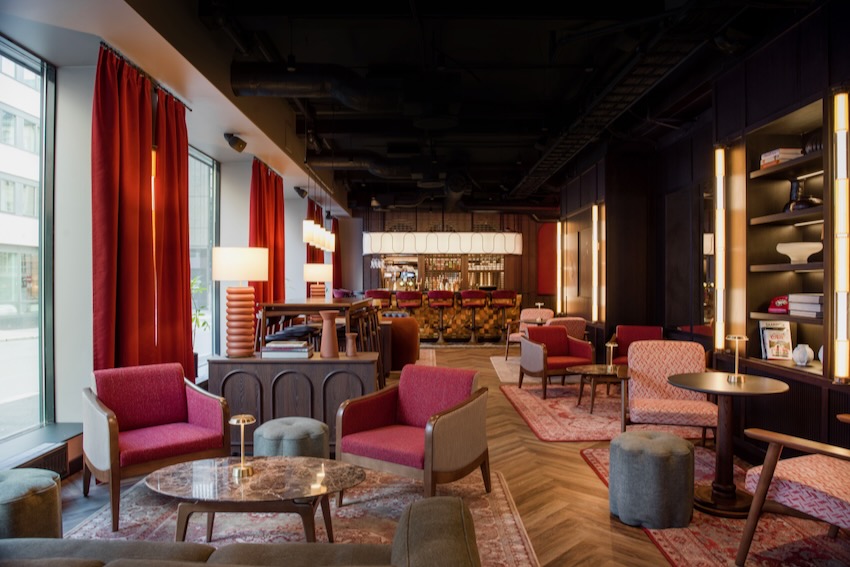
EUROPE: Radisson Hotel Group has opened a second Verified Net Zero Hotel, this time in Norway, following a UK debut earlier this year.
Radisson RED Oslo City Centre follows in the footsteps of the group’s Manchester property which achieved Verified Net Zero status earlier this year.
A Verified Net Zero hotel eliminates emissions from energy (scope 1 & 2) and minimises operational emissions (scope 3).
The Verified Net Zero transformation is visible to guests in three key areas: 100 per cent renewable energy, low-carbon menus, and a commitment to minimal waste operations.
Radisson RED Oslo City Centre was a former Park Inn by Radisson, and the building dates back to 1939.
The new hotel offers 118 reimagined guest rooms, social spaces, flexible meeting facilities, and a playful twist on Scandinavian minimalism.
The property reflects Radisson Hotel Group’s commitment to reaching Net Zero by 2050, and has already achieved the 2040 requirements of the Net Zero Methodology for Hotels — as verified by independent third party TÜV Rheinland.
Inge Huijbrechts, chief sustainability & security officer at Radisson Hotel Group, said: “Pioneering the first two Verified Net Zero hotels is a significant milestone for Radisson Hotel Group. By transforming hotels in operation to Verified Net Zero status, we are demonstrating that Net Zero conversion hotels are not only possible, they are essential.
“With 80 per cent of the buildings that must reach Net Zero by 2050 already built, it is critical that we move quickly to transform existing properties. We are happy to be able to deliver the pinnacle of sustainable hospitality to our guests.”
Oslo is one of the few cities in Europe to use fully renewable energy for its district heating by using renewable heat generated from multiple sources such as city waste treatment, or data centers.
To achieve Verified Net Zero status, Radisson RED Oslo City Centre is powered by 100 per cent renewable energy, including 100 per cent renewable electricity and city district heating sourced from sustainable sources such as waste-to-energy and data center heat recovery, thus eliminating Scope 1 and 2 emissions.
In addition, the hotel significantly reduces Scope 3 emissions through a holistic approach to operations and supply chains—especially in F&B, laundry and waste management.
Low-carbon menus curated with Swedish partner Klimato, will feature fresh, seasonal ingredients while reducing recipe carbon footprints up to 40 per cent.
Zero-waste initiatives such as food waste tracking software (eSmiley), a partnership with Too Good To Go to make surplus food available on a community app and widespread recycling infrastructure including the use of glass bottles and Nespresso pod recycling.
Remaining emissions are compensated with carbon removal certificates from Nature Based Solutions in partnership with Agreena, supporting over 2,300 farmers in regenerative practices across 4.5 million hectares of farmland in Europe.
Other initiatives for guests to look out for:
- 100 per cent bulk bathroom amenities and recycling of the packaging with Clean the World
- Plastic free dry amenities and a programme to minimise wastage of accessory amenities
- Glass water bottles in guest and conference rooms, as opposed to PET plastic
- Recycling bins in all guestrooms and main public areas including the lobby and conference rooms
- Digital tools that reduce paper use, including the Stay E-concierge app
- Guest facing initiatives like Dripdrop, which offers hotel umbrellas for reuse, and with a tree is planted every time a guest borrows an umbrella
Image: Supplied

